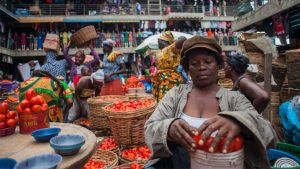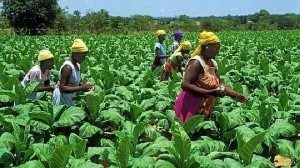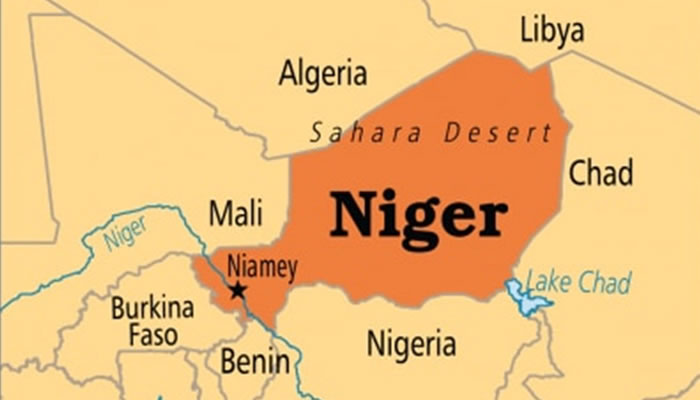Ghana’s agricultural sector holds immense promise for economic growth, food security, and poverty reduction. With its abundant natural resources, favourable climate, and predominantly agrarian population, agriculture plays a significant role in Ghana’s economy, contributing to employment, rural livelihoods, and national development. However, like many other African countries, Ghana’s agriculture sector faces various challenges that hinder its full potential. In order to transform the sector and achieve sustainable and inclusive agricultural growth, Ghana needs to adopt innovative strategies, invest in research and development, empower women and youth, promote sustainable natural resource management, strengthen institutional capacities, embrace digital innovation, diversify agricultural production, and collaborate among various stakeholders.
Investing in Agricultural Research and Development
Investing in agricultural research and development is crucial for generating context-specific technologies and practises that can enhance productivity and sustainability in Ghana’s diverse agro-ecological zones. Collaborative efforts between research institutions, universities, and extension services can help disseminate knowledge and innovation to farmers, enabling them to adopt modern technologies and practises that can increase their yields and incomes.
Adoption of modern farming practises One key area for improvement is the adoption of modern farming practises. While traditional methods have been the norm in Ghana’s agriculture sector, there is a need to embrace modern technologies and practises to enhance productivity and sustainability. This includes promoting mechanisation, irrigation, and precision agriculture, as well as improving access to high-quality seeds, fertilisers, and pesticides.
Access to credit and markets
Access to credit and markets remains a significant challenge for many farmers in Ghana. Lack of access to affordable credit hampers farmers’ ability to invest in modern technologies, expand their operations, and improve their livelihoods. Addressing this challenge requires innovative financing mechanisms, such as agricultural credit schemes, agricultural insurance, and farmer cooperatives, that cater to the unique needs of smallholder farmers. Additionally, improving market access through infrastructure development, market information systems, and value chain integration can help farmers access higher-value markets, increase their incomes, and reduce post-harvest losses.
Empowering women and youth in agriculture
Empowering women and youth in agriculture is crucial for inclusive and sustainable agricultural development. Women play a vital role in Ghana’s agriculture sector, accounting for a significant portion of the agricultural labour force. However, they often face gender-specific constraints such as limited access to land, credit, and extension services. Promoting gender equality in agriculture through targeted policies and programmes can empower women farmers, enhance their productivity, and improve their economic and social well-being. Similarly, engaging youth in agriculture through skills development, access to finance, and entrepreneurship opportunities can attract and retain young talent in the sector, fostering innovation and dynamism.
Sustainable natural resources
Sustainable natural resource management is essential for the long-term viability of Ghana’s agriculture sector. Deforestation, soil erosion, water pollution, and the depletion of natural resources are some of the challenges that threaten the sustainability of Ghana’s agriculture. Implementing sustainable land management practises, conserving forests, protecting soils, and promoting efficient water use are critical for ensuring that Ghana’s agriculture remains resilient to environmental shocks and climate change. Community-based natural resource management approaches that involve local communities in decision-making processes can foster ownership, stewardship, and sustainable use of natural resources.
Strengthening institutional capacities
Strengthening institutional capacities is vital for effective governance and the implementation of agricultural policies and programmes. Weak institutional capacities, a lack of coordination, and corruption can hinder the efficient and transparent functioning of agricultural institutions. Enhancing the technical expertise, human resources, and financial capacities of agricultural ministries, departments, and agencies can improve policy formulation, implementation, and monitoring. Promoting transparency, accountability, and anti-corruption measures can ensure that resources are effectively and efficiently used for the benefit of farmers and other stakeholders. Engaging stakeholders in participatory decision-making processes can also ensure that the voices and needs of farmers, local communities, and other actors are heard and integrated into agricultural policies and programmes.
Embracing digital innovation
Digital tools and technology can play a significant role in boosting agricultural productivity, efficiency, and profitability. Ghana can encourage the adoption of digital innovation in agriculture by creating incentives for private sector investment, promoting digital literacy among farmers, and developing a supportive policy and regulatory framework. For example, digital platforms can provide real-time information on market prices, weather patterns, and farming practises, enabling farmers to make informed decisions. Additionally, these platforms can facilitate access to credit, extension services, and market linkages, thereby improving the livelihoods of smallholder farmers.
Diversifying Agricultural Production While Ghana has traditionally focused on a few crops such as cocoa, maize, and cassava for agricultural production, diversification can create new opportunities for farmers and enhance food security. For instance, Ghana can promote the production of high-value crops such as fruits, vegetables, and nuts, which have a growing demand in local and international markets. Diversifying livestock production, such as poultry, fish, and small ruminants, can also improve nutrition and income for smallholder farmers. To encourage diversification, Ghana can offer incentives for crop diversification, invest in research and development for new crops and livestock, and promote market linkages for a variety of agricultural products.
Collaboration among various stakeholders is essential.
To achieve these goals, collaboration among various stakeholders is essential. This includes government agencies, research institutions, universities, farmer organisations, cooperatives, civil society organisations, and development partners. Collaborative efforts can facilitate knowledge dissemination, promote innovation, and enhance the coordination and implementation of agricultural policies and programmes.
Ghana’s agriculture sector has significant potential for sustainable and inclusive development. Deviating from traditional ways and investing differently in the agricultural sector will go a long way towards transforming the agricultural sector in Ghana.




![Nigeria is accommodating For Business- Maryam Yakubu [ Food Entrepreneur]](https://www.africanleadershipmagazine.co.uk/wp-content/uploads/2023/05/Maryam-Yakubu.png)
